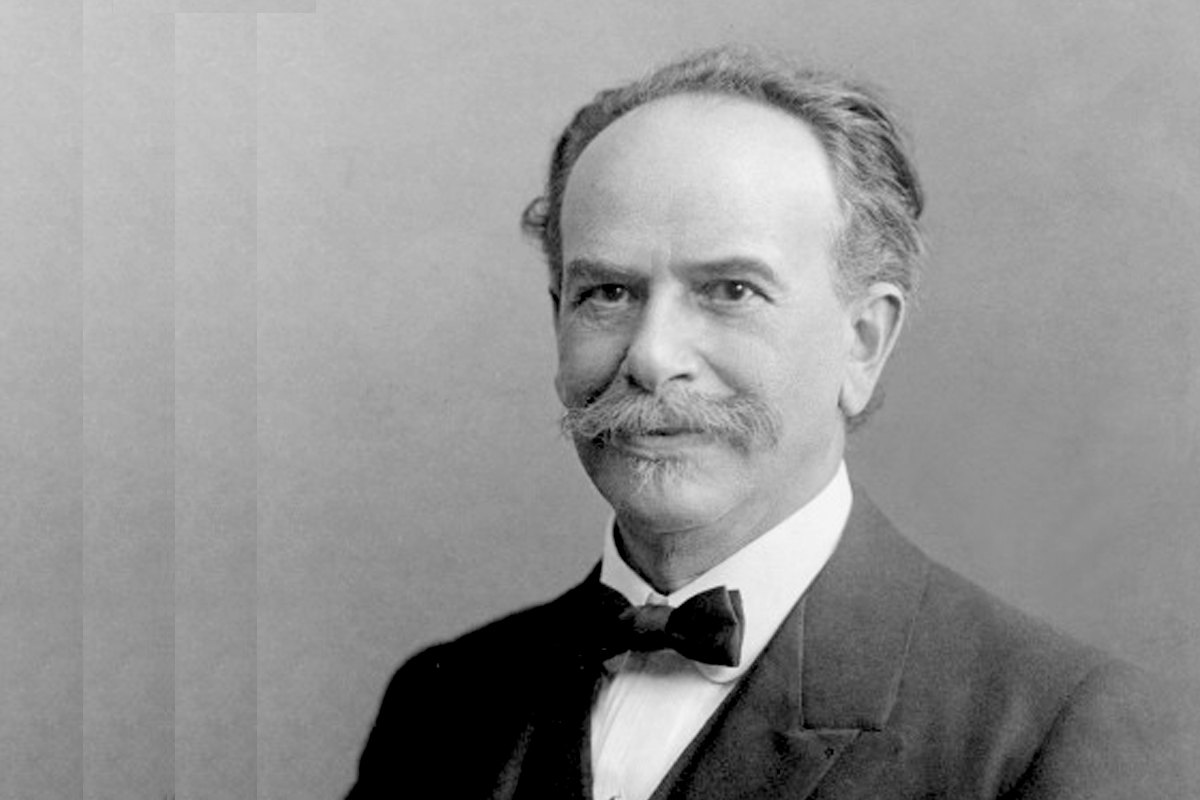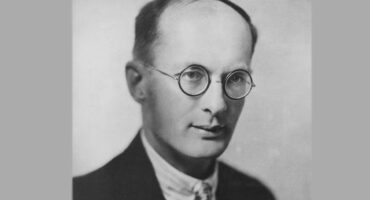



Franz Boas : Contribution to Anthropology

Franz Boas (1858-1942) was a German-American anthropologist, often referred to as the “father of American anthropology.” His pioneering work in the late 19th and early 20th centuries laid the foundation for modern anthropology.
Importance of Franz Boas in the field of anthropology
Boas played a crucial role in establishing anthropology as a rigorous scientific discipline in the United States. His innovative approaches and theories challenged the prevailing notions of the time and reshaped the understanding of human cultures and societies.
Thesis statement
Franz Boas significantly transformed anthropology through his development of cultural relativism, his methodological innovations, and his advocacy for ethical research practices.
Early Life and Education
Background and early life
Franz Boas was born on July 9, 1858, in Minden, Westphalia, then part of the Kingdom of Prussia. He was raised in a liberal Jewish family that valued education and intellectual pursuits. His early exposure to diverse cultures and intellectual debates influenced his later work in anthropology.
Education and early influences
Boas studied at several universities, including the University of Heidelberg, University of Bonn, and University of Kiel, where he earned his doctorate in physics in 1881. His early interest in the natural sciences and geography provided a strong foundation for his interdisciplinary approach to anthropology.
Initial interest in anthropology
Boas’ interest in anthropology was sparked during his fieldwork among the Inuit of Baffin Island in 1883-1884. This experience challenged his preconceived notions about “primitive” societies and led him to question the ethnocentric biases of contemporary anthropological thought. This pivotal moment marked the beginning of his commitment to understanding cultures on their own terms and laid the groundwork for his later theoretical contributions.
Cultural Relativism
Definition of Cultural Relativism
- Concept Explanation: Cultural relativism is the idea that a person’s beliefs, values, and practices should be understood based on that person’s own culture, rather than be judged against the criteria of another culture.
- Boas’ Perspective: Boas argued that cultures cannot be ranked as higher or lower but are unique products of their own historical and social contexts.
Boas’ Critique of Ethnocentrism
- Ethnocentrism Defined: The belief in the inherent superiority of one’s own culture or ethnic group.
- Boas’ Opposition: Boas opposed ethnocentrism, promoting the idea that all cultures are equally valid and worthy of study.
- Impact on Anthropology: His critique helped shift the field away from a hierarchical view of cultures to a more egalitarian and holistic understanding.
Case Studies and Examples from Boas’ Work
- Example: Kwakiutl Studies: Boas conducted extensive fieldwork among the Kwakiutl (Kwakwaka’wakw) people of the Pacific Northwest.
- Cultural Practices: He documented their art, mythology, social structure, and rituals, demonstrating the richness and complexity of their culture.
- Relativism in Practice: Through this work, Boas showcased the importance of understanding cultural practices within their own context rather than through the lens of Western norms.
Impact on Subsequent Anthropological Research
- Shift in Focus: Boas’ promotion of cultural relativism led to a broader and more inclusive approach in anthropology.
- Influence on Future Anthropologists: His ideas influenced generations of anthropologists to study cultures without bias, emphasizing the importance of context in cultural analysis.
- Critique of Racial Theories: Boas’ work laid the groundwork for challenging racial determinism and pseudoscientific racism, emphasizing the cultural over the biological.
Methodological Innovations
Introduction of the Four-Field Approach
- Four Fields of Anthropology: Boas pioneered the integration of the four main fields of anthropology: cultural anthropology, linguistic anthropology, archaeology, and biological (physical) anthropology.
- Holistic Study: This approach promoted a comprehensive understanding of human societies by examining various aspects of their existence.
Emphasis on Fieldwork and Participant Observation
- Fieldwork Importance: Boas stressed the necessity of direct fieldwork for gathering accurate and meaningful data.
- Participant Observation: He advocated for anthropologists to immerse themselves in the cultures they study, participating in daily activities to gain deeper insights.
- Ethnographic Method: Boas’ emphasis on detailed, long-term ethnographic studies became a cornerstone of anthropological research.
Development of Rigorous Scientific Methods in Anthropology
- Scientific Rigor: Boas emphasized the importance of using scientific methods in anthropological research to ensure accuracy and reliability.
- Data Collection and Analysis: He introduced systematic methods for collecting and analyzing data, such as detailed mapping, recording oral histories, and using statistical techniques.
- Challenge to Evolutionary Theories: Boas challenged the unilinear evolutionary theories of his time, arguing for a more nuanced understanding of cultural development.
Contributions to Ethnography and Ethnology
- Ethnography: Boas’ fieldwork and detailed documentation of cultures set new standards for ethnographic research.
- Examples: His studies of the Inuit, Kwakiutl, and other indigenous groups provided rich, comprehensive accounts of their ways of life.
- Ethnology: Boas contributed to the comparative study of cultures, emphasizing the importance of context and historical background in understanding cultural differences and similarities.
Advocacy for Ethical Research
Boas’ Stance on Anthropological Ethics
Franz Boas was a staunch advocate for ethical research practices in anthropology. He criticized the prevailing attitudes of his time that viewed non-Western cultures through a lens of superiority, known as ethnocentrism. Boas argued for cultural relativism, the idea that each culture should be understood within its own context without imposing external judgments. This perspective challenged anthropologists to approach their studies with greater sensitivity and respect for cultural diversity.
Efforts to Protect Indigenous Rights and Cultures
Boas actively worked to protect indigenous rights and cultures against exploitation and marginalization. He emphasized the importance of preserving cultural heritage and opposed practices that threatened the integrity of indigenous societies. His advocacy laid the foundation for ethical guidelines in anthropological research, influencing future generations of anthropologists to consider the ethical implications of their work.
Criticism of Pseudoscientific Racism and Eugenics
Boas also played a significant role in debunking pseudoscientific theories such as racial hierarchy and eugenics. He conducted studies that demonstrated the variability within human populations and argued against the deterministic view that linked biology to culture and intelligence. Boas’ research countered the prevalent notion of biological determinism, highlighting the role of environment and social factors in shaping human diversity.
Influence on Professional Standards in Anthropology
Boas’ advocacy for ethical research and his critiques of pseudoscientific racism contributed to the establishment of professional standards in anthropology. His efforts led to the adoption of codes of ethics that emphasize respect for cultural diversity, informed consent, and the protection of research participants. Boas’ legacy continues to shape contemporary anthropological practice, inspiring researchers to conduct culturally sensitive and ethically responsible studies.
Teaching and Mentorship
Boas’ Role as a Professor at Columbia University
Franz Boas had a profound impact on the development of anthropology through his role as a professor at Columbia University. He established the first doctoral program in anthropology in the United States, where he trained a generation of influential anthropologists. Boas’ teaching emphasized rigorous empirical research and fieldwork, encouraging students to engage directly with diverse cultures to gain firsthand knowledge.
Mentorship of Prominent Anthropologists
Boas’ mentorship extended to numerous prominent anthropologists who became influential figures in their own right. Among his notable students were Margaret Mead, Ruth Benedict, and Zora Neale Hurston, who contributed significantly to the field of anthropology. Boas’ mentorship fostered a tradition of critical inquiry and empirical research, shaping the direction of American anthropology and influencing debates on culture, gender, and society.
Influence on the Development of American Anthropology
Through his teaching and mentorship, Boas significantly shaped the trajectory of American anthropology. His emphasis on cultural relativism, methodological rigor, and ethical responsibility set the standard for anthropological research in the United States. Boas’ students carried forward his legacy, advancing theories and methodologies that challenged prevailing assumptions and contributed to a more nuanced understanding of human diversity and cultural dynamics.
Legacy and Lasting Impact
A. Boas’ Publications and Major Works
Franz Boas authored numerous influential works that shaped the field of anthropology:
- “The Mind of Primitive Man” (1911): This book challenged prevailing notions of racial superiority and argued for the importance of cultural context in understanding human behavior.
- “Anthropology and Modern Life” (1928): Addressed contemporary issues such as race relations and cultural diversity, emphasizing cultural relativism.
- “Race, Language, and Culture” (1940): Collected essays that further elaborated on Boas’ views on race and culture, advocating for tolerance and understanding.
B. Continued Relevance of Boas’ Ideas in Contemporary Anthropology
- Cultural Relativism: Boas’ concept remains fundamental in modern anthropology, encouraging scholars to understand cultures within their own contexts rather than through ethnocentric lenses.
- Methodological Innovations: His emphasis on rigorous fieldwork and the four-field approach (cultural, linguistic, archaeological, biological) continues to influence anthropological research methodologies.
- Ethical Considerations: Boas’ advocacy for ethical research practices and respect for indigenous cultures remains relevant amidst ongoing debates over cultural appropriation and research ethics.
C. Comparison with Other Anthropological Theorists
- Margaret Mead: Influenced by Boas, Mead expanded on his work in cultural anthropology, particularly in gender studies and the study of childhood.
- Ruth Benedict: Known for her cultural configurations theory, Benedict was a student of Boas and applied his cultural relativism to comparative cultural analysis.
- Claude Lévi-Strauss: While later and from a different school of thought (structuralism), Lévi-Strauss was influenced by Boas’ emphasis on cultural diversity and the study of kinship systems.
Conclusion
Franz Boas’ contributions to anthropology were profound and far-reaching, fundamentally reshaping the discipline:
- Cultural Relativism: Boas’ rejection of ethnocentrism laid the groundwork for understanding and respecting cultural diversity.
- Methodological Innovations: His insistence on rigorous fieldwork and holistic approaches established the standards for anthropological research.
- Ethical Advocacy: Boas’ defense of indigenous rights and ethical research practices continues to inspire anthropologists worldwide.
Boas’ legacy endures not only through his writings but also through the generations of anthropologists he mentored and influenced.
References
For further exploration of Franz Boas’ life, work, and impact on anthropology, consider these key sources:
- Boas, Franz. The Mind of Primitive Man. New York: Macmillan, 1911.
- Boas, Franz. Anthropology and Modern Life. New York: Norton, 1928.
- Boas, Franz. Race, Language, and Culture. New York: Free Press, 1940.
- Stocking, George W. Franz Boas: The Early Years, 1858-1906. Seattle: University of Washington Press, 1996.
- Kuper, Adam. The Reinvention of Primitive Society: Transformations of a Myth. London: Routledge, 2005.












